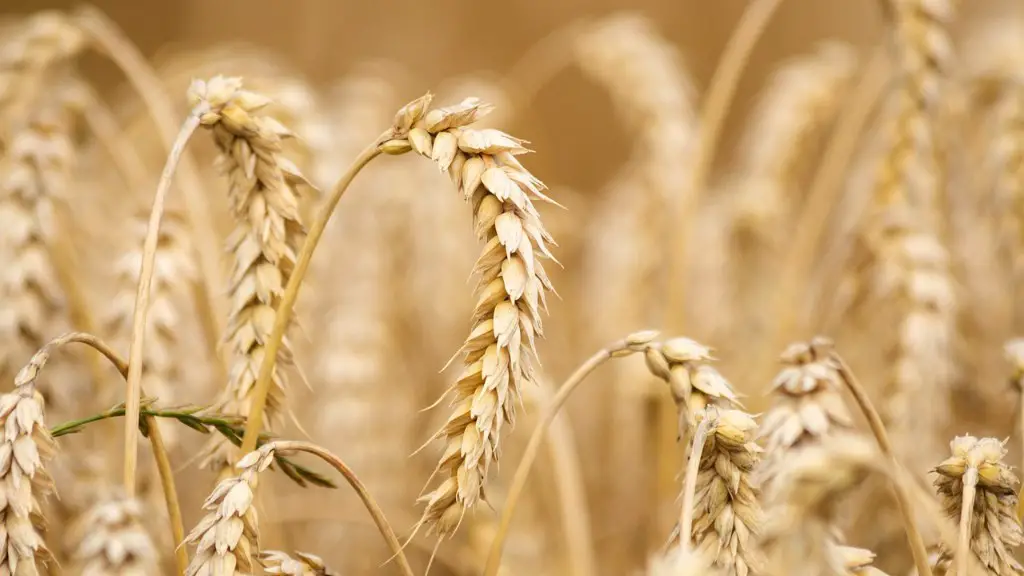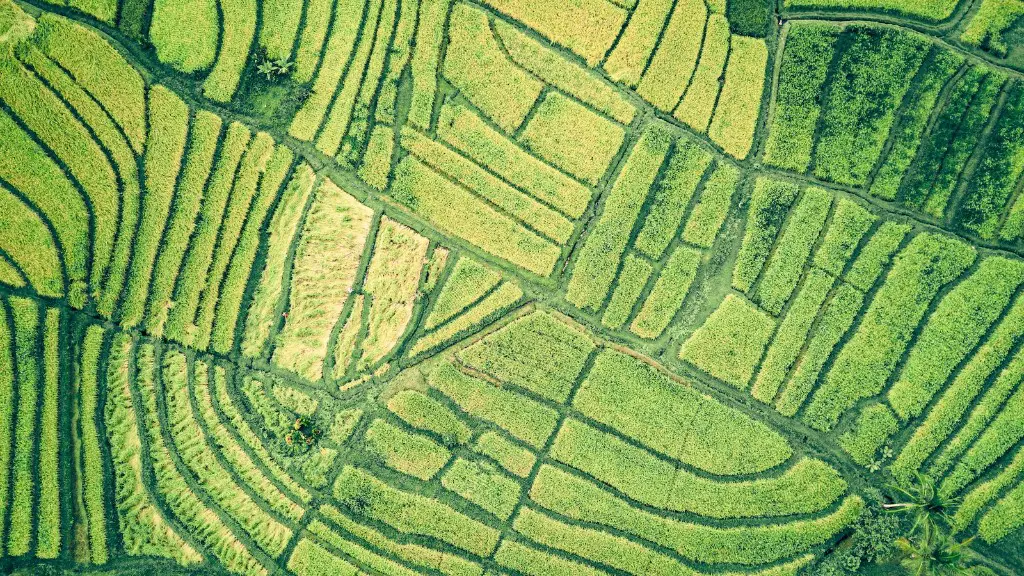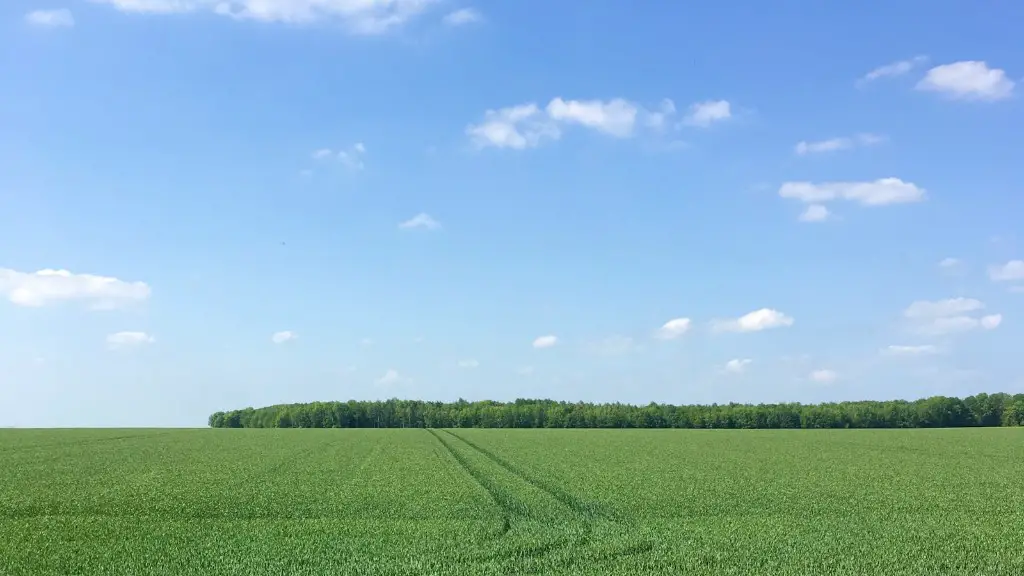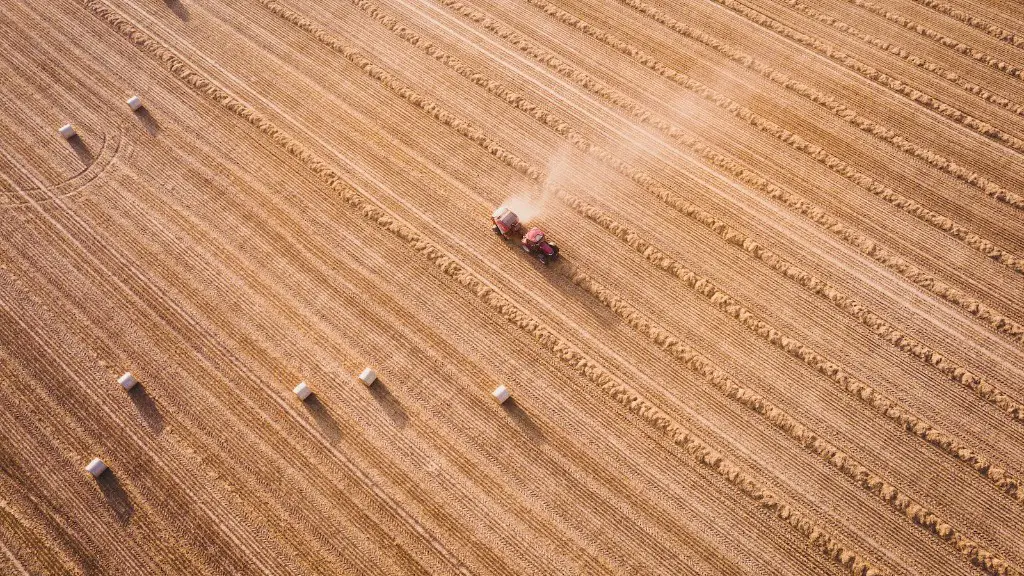Early humans are considered to have revolutionized modern civilization when they made the switch from foraging for food to cultivating it instead. This fundamental change in their lifestyle enabled communities to settle in one place and form the basis of the world’s oldest – and perhaps most pivotal – modes of production: Agriculture. In this article, we explore how this radical shift helped evolve the lives of early humans and ultimately changed the face of human history.
Most researchers agree that the development of agriculture was a key factor in the rise of civilized human societies. Prior to the agricultural revolution, humans lived as nomadic hunter-gatherers, a mobile lifestyle determined by the proximity of food sources. The idea of growing and harvesting crops allowed people to remain in one place and solidify their communities. They formed safe and productive settlements, which facilitated further developments in culture and technology.
Growing crops also permitted populations to increase beyond a previously sustainable level. Humans were now able to produce enough food to keep up with population growth. With a larger and more stable food supply, more people survived, which naturally created a more diverse social system. This way, people could specialize in various activities and roles within the community, and eventually, the possibilities for trade and economic development.
The agricultural revolution opened up new markets and the bartering of crops allowed communities to share resources. It also enabled the storage of surplus food which helped communities prepare for economic downturns. The surplus of food created a level of economic security unique in the ancient world.
With a steady food source, humans could begin to further develop the various elements which lead to advanced civilizations: arts, religion, writing, law and other societal values. The agricultural revolution allowed humans to move away from the nomadic hunter-gatherer societies and shift to a more sedentary lifestyle. As the earth’s population grew, large cities began forming, accompanied by major architectural and cultural achievements.
Effects on the Environment
Agriculture had a profound effect on the environment by changing the landscape of farmland into complex networks of settlements. As human societies required more land, they cleared forests to create more space. This lead to species extinction, air and water pollution, and soil erosion. Such drastic agricultural practices irreversibly altered the planet’s delicate ecosystems.
The first crops grown by ancient humans had a significant effect on their diets. Monoculture crops, like wheat, rice and bananas, became dominant agricultural crops and replaced the diverse food sources consumed by hunter-gatherers. As the agricultural revolution spread, nutritionally-poor diets became prevalent and lead to modern-day metabolic health problems such as diabetes and hypertension.
Shift Towards Economic Systems
With the introduction of agriculture, people had to start managing land, labor, tools and other resources. This sparked the rise of rudimentary economic systems, like land tenure and wage labor, and trade networks were developed. As a result, kings and emperors gained immense power through the control of resources. This way, those who held power could manipulate different markets and reap the benefits.
Ancient civilizations which implemented detailed economic systems grew rapidly and achieved phenominal success. The rise of cities and an influx of immigrants followed. As society took a turn towards more commercialized methods of production and consumption, it created a more competitive social system. This helped spur progress towards a more advanced and complex form of rule, eventually leading to the firm establishment of monarchies.
Impacts on Warfare
Prior to the agricultural revolution, warfare was largely focused on scavenging and little else. The ability to farm, cultivate and store surplus food changed the course of armed conflict. Now soldiers had an incentive to fight, in the form of land, resources and food. The military was no longer dependent on hunting and gathering, and armies could be supplied and kept fed regardless of the season. They could fight for long periods of time, resulting in larger and more devastating wars.
The new economic system enabled rulers to support large armies with resources granted to them by their citizens. This gave them the power to maintain large standing armies without having to put too much strain on the population. This was a major development in human history and shaped the entire political landscape of the Ancient world.
The Role of Religion
Agriculture assisted in the rise of religion due to the increased availability of food, which permitted larger populations to grow. With the settlement of people, spiritual beliefs began to be closely interwoven with their way of life. People began offering spiritual sacrifices and prayers to gods, in return for a successful harvest. This demonstrated the impact of agriculture on the development of early religious communities.
The spread of agricultural techniques and practices also accompanied the dissemination of deities throughout bordering regions. This is evident in the shared worship of deities such as Marduk, Ishtar and Ra who were common figures across different cultures. It is interesting to note how the advancement of agriculture was closely linked the rise and spread of central monotheistic religions such as Judaism, Christianity and Islam.
Impact on Social Structures
Agriculture also allowed for a more stratified society, with classes grouped by income and power. As people specialized in various occupations, class divisions emerged, forming social systems and hierarchies. Civilization was based on the exploitation of labor and labor was measured in terms of the resources it could produce. With the rise of the agricultural economy, a new class of aristocratic landlords had control of the land and could determine the lives of those who inhabited it.
These social hierarchies facilitated the development of governments, introducing laws, taxes and forms of law enforcement. This gave rulers and states a way to unify and control vaster populations, creating the largest human empires the world had seen.
Impact on Art and Culture
The rise of agriculture had a profound effect on the development of art and culture. As people remained in one place, the need for art began to grow. Stoneware, pottery and sculpture all emerged as a form of entertainment. Alongside this, the increased stability allowed humans to use music and dance, creating an important part of their culture.
Agriculture also made it possible for people to pursue creative ventures, such as writing. The ancient world was one of incredible literary complexity filled with epics, hymns and prayers, which provided insight into ancient civilizations, philosophies, and beliefs. It also acted as a form of entertainment for rulers and aristocrats, who commissioned works on art, science and literature. This is particularly evident in the spread of Ancient Greek culture that relies largely on the written word for its transmission.
Impact on Gender Roles
The invention of farming gave strong momentum to the division of labor by gender. With increased crop production, many of the tasks related to planting, harvesting and managing animals were given to men, while women focused on domestic labor. This distinction and further specialization of roles has impacted cultures throughout the world, in which women are often seen to occupy lesser positions despite having a huge contribution to the success of agricultural production.
The introduction of agriculture also helped solidify the connection between males and females and the roles they play in society. A strict gender-based division of labor created patterns of male dominance and privilege, which still exist in many parts of the world today. Women were typically delegated to tasks such as cooking, cleaning and providing childcare.
Economic Exploitation of Women
The development of agriculture created a new economic system in which women were greatly disadvantaged. Women’s labor was used by men to increase their wealth and status in society. Women were rarely paid for their work and had minimal autonomous rights or control over their lives. This kind of exploitation has had long-lasting impacts on gender equality around the globe.
Moreover, agriculture often relied on women for their knowledge, skills, and cultural practices in order to achieve successful crop production. Despite this, women were rarely rewarded for their efforts and were instead subject to labor exploitation. This kind of systematic oppression lasted until the 19th century, and even in modern times, women still face wage gaps and lack of opportunity in many countries.





